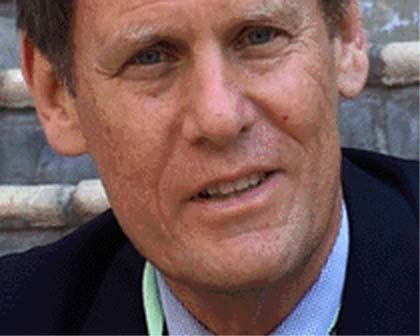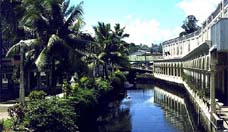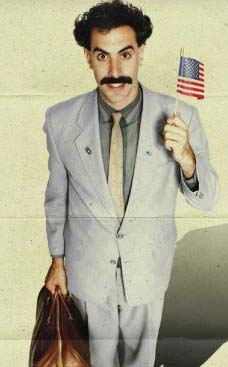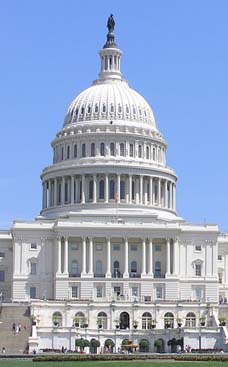
"The challenge for this century is to anticipate problems and work to find solutions—solutions that move us toward a rising standard of living, a world without poverty, and a stable and sustainable global environment. Solving many of these complex problems will require change, most fundamentally in our way of thinking and our priorities. We are increasingly—and inevitably—citizens of a global community, and we must learn to think in those terms. In a sense, we may be coming full circle, since it is clear that poverty alleviation and a stable global environment are fundamental parts of global security. A renewed commitment to poverty reduction, health care, education, and environmental protection in both the industrialized and developing worlds constitutes a positive long-term response to the nihilistic agenda of terrorists. A greatly strengthened effort to support the development of renewable energy sources reduces the world’s dependence on oil, and at the same time responds to the increasingly dire need to reduce fossil fuel emissions to help avert massive climate change. The careful management of watersheds and forests could provide the difference between a stable living environment for millions or destabilizing refugee movements." Jonathon Lash, President of the World Resources Institute, served as a Peace Corps Volunteer in the Dominican Republic.
Jonathan Lash writes: As we look back on the past year, we see a world undergoing extraordinarily rapid change
Letter from Jonathan Lash, President, WRI
Source: 2005. WRI Annual Report 2004. World Resources Institute.
As we look back on the past year, we see a world undergoing extraordinarily rapid change: economic activity that is increasingly global in nature and market-based; virtually instant communication spreading rapidly around the world; a continuing rise in the number and influence of nongovernmental organizations (NGOs); and a hopeful movement in many countries toward democracy and greater public participation.
Yet, growth is dismayingly uneven, and much of the world is being left behind. In sub- Saharan Africa, parts of South Asia, and elsewhere, fertility rates remain high, economic growth relatively slow, and poverty a massive problem. The poor remain generally disconnected, and are often unable to participate in economic opportunities or even in governmental decisions affecting them. Global security remains high on the agenda, yet the world has been fractured by the United States’ insistence, as the world’s superpower, on unilateral decisions.
And as the evidence of human-caused climate change grows stronger, we need to understand that global inaction is rapidly eliminating options for protecting our world. The poor will be the first victims, but future generations—rich and poor—will wonder why we failed to use our remarkable technology and considerable wealth to slow the buildup of greenhouse gases.
The challenge for this century is to anticipate problems and work to find solutions—solutions that move us toward a rising standard of living, a world without poverty, and a stable and sustainable global environment. Solving many of these complex problems will require change, most fundamentally in our way of thinking and our priorities. We are increasingly—and inevitably—citizens of a global community, and we must learn to think in those terms.
In a sense, we may be coming full circle, since it is clear that poverty alleviation and a stable global environment are fundamental parts of global security. A renewed commitment to poverty reduction, health care, education, and environmental protection in both the industrialized and developing worlds constitutes a positive long-term response to the nihilistic agenda of terrorists. A greatly strengthened effort to support the development of renewable energy sources reduces the world’s dependence on oil, and at the same time responds to the increasingly dire need to reduce fossil fuel emissions to help avert massive climate change. The careful management of watersheds and forests could provide the difference between a stable living environment for millions or destabilizing refugee movements.
The global issues that WRI worked to put on the international agenda 20 years ago have emerged as major challenges of the 21st Century: climate change, biodiversity loss, desertification, forest and reef destruction, and growing stress on freshwater resources.
But the job of calling attention to these issues is not as lonely as it once was. In both the industrialized and developing worlds, we now work with a host of partners—governments, nongovernmental organizations, corporations and individual entrepreneurs, and international institutions. We can see a remarkable and hopeful desire to work together across boundaries to create solutions that are simultaneously pro-growth, pro-poor, and proenvironment. WRI has succeeded in constructing a big tent, welcoming partners ranging from small NGOs in developing countries to multinational corporations and international institutions.
As this Annual Report describes, we now focus on four areas: healthy ecosystems, stable climate, sustainable enterprise, and access to environmental information and decisions. Issues such as these drive our work at WRI and produced some remarkable results in 2004, which are described in more detail in this report.
* Greenhouse Gas Protocol. Businesses, organizations, and governments around the world are using the Protocol
to more effectively manage and reduce emissions that contribute to climate change.
* Green power. Working with WRI, the Green Power Market Development Group completed deals totaling 62 megawatts of green power projects and purchases. These include one of the largest renewable energy certificate deals in the United States.
* The Access Initiative. In 2004, the Access Initiative network which is committed to improving access to information and decision-making, expanded to include national NGO coalitions in 15 new countries. The TAI network now includes coalitions in 25 countries.
* New Ventures. WRI’s New Ventures Project, which supports sustainable enterprise creation in Latin America and
Asia, has doubled the number of companies in its portfolio. It has now attracted over $10 million in investment.
* Earth Trends. EarthTrends continues to fill a vital and rapidly growing role in providing online access to information about the environmental, social, and economic trends that shape our world. Usership has more than doubled over the past year, peaking at 125,000 visitor sessions per month in late 2004.
I deeply appreciate your interest in WRI and I believe you will find the results-oriented information in this Annual Report compelling—not just about the challenges we face, but about the solutions WRI and partners are constantly
developing to protect the Earth and improve people’s lives.
Jonathan Lash
President


















